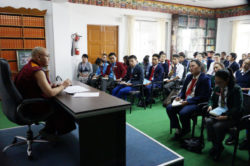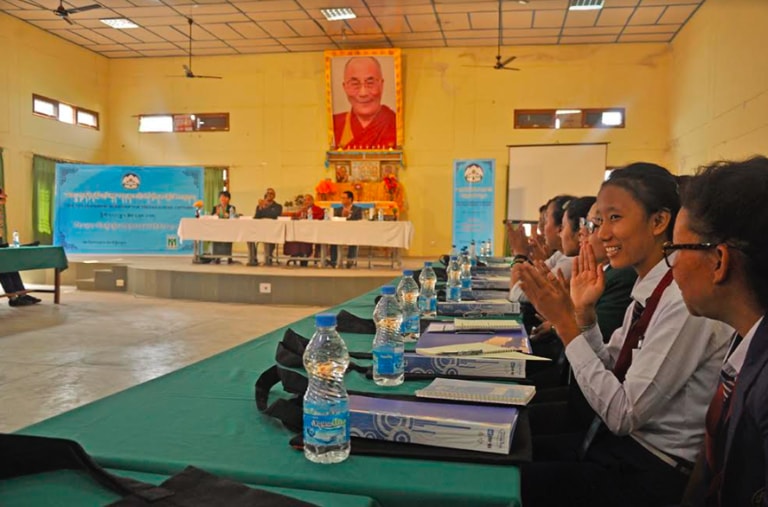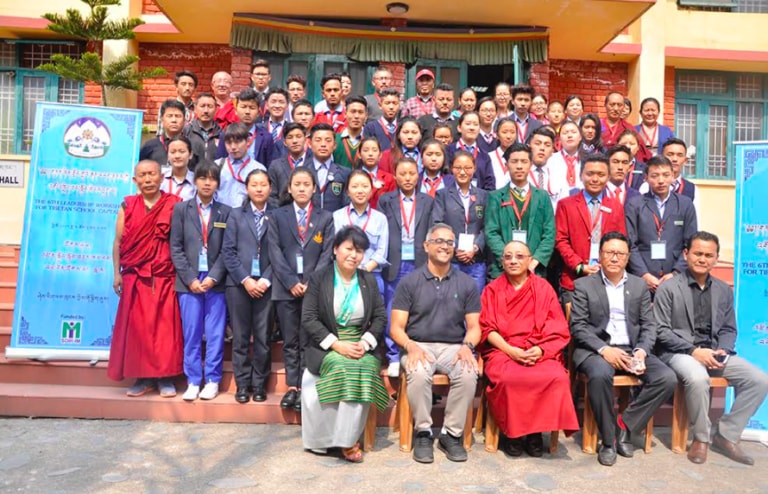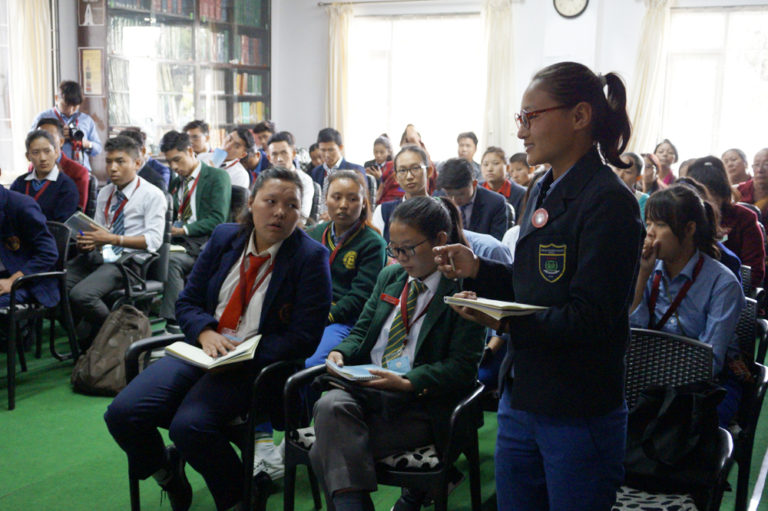
The Department of Education, Central Tibetan Administration (CTA) organized the 6th Leadership Skills Workshop for Tibetan school captains and teachers at the Administrative Training and Welfare Society, Dharamsala from 2nd-7th April, 2018. The six-day intensive training workshop was attended by a total of 53 participants – 36 students (18 boys & 18 girls) and 17 teachers from 18 senior secondary Tibetan schools from India and Nepal.
The workshop started with the opening ceremony introduced by Ven. Karma Gelek Yuthok, Education Kalon, who was accompanied by Mr. Palden Dhondup, Director of Administrative Training and Welfare Society, and Mr. Sanjay Upendrum, Chief Executive Officer of Amanthi Consulting Ltd. in Hyderabad. They spoke about the importance of preserving Tibetan culture and values, leadership, and the captains’ responsibilities. Mr. Upendrum highlighted that the participants are representatives for over 22,000 children, so they must take the workshop seriously and attain knowledge to teach others.
The first three days were led by Mr. Sanjay Upendrum (Resource person) who focused on leadership, planning, emotional intelligence, and public speaking skills. On the fourth day, the school captains and teachers visited CTA head offices and LTWA.
The remaining three days were directed and led by various notable speakers which included Sikyong Dr. Lobsang Sangay; Kenpo Sonam Tenphel, Speaker of Tibetan Parliament in Exile (TPiE); Mr. Dorjee Gyaltsen, Professor at Centre for Higher Tibetan Studies (CHTS); Geshe Lhakdor la, Director of Library of Tibetan Work and Archives (LTWA); Mr. Ugyen Tenzin, Head of Terminology section, Dept. of Education (DoE); Mr. Tenpa Gyaltsen, Environmental Desk, Tibetan Policy Institute (TPI); Mr. Ngawang Younten, Head of Scholarship and Sponsorship section, DoE; and Mrs. Sonam Dechen, Assistant Director, Tibetan Centre for Conflict Resolution (TCCR).
The afternoon closing ceremony was led by Mr. Kama Singey, Secretary, DoE. He emphasized the responsibility of school captains and urged them not to use physical punishment when dealing with students, especially younger students. He concluded his session by thanking the participants of the workshop for their continuous support.



